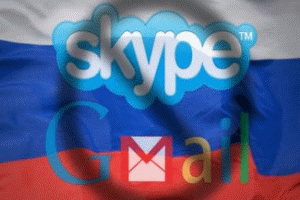Chechen leader (Russia) Ramzan Kadyrov offered Russia to be without foreign messengers
 Using Skype, Twitter and other western services harms the security of the country, says the head of Chechnya. Chechen leader Ramzan Kadyrov said that the spread of western communication services on the Internet harms national security.
Using Skype, Twitter and other western services harms the security of the country, says the head of Chechnya. Chechen leader Ramzan Kadyrov said that the spread of western communication services on the Internet harms national security.
Their use encourages the ongoing double standards west policy, Kadyrov said. He considers situation to be unacceptable in which the West controls Russian users, and Russia is far from the steering information. The main problem is lack of control. Kadyrov also offered to turn off the Internet, as a global network, in his opinion, interfere with the proper education of youth.
Read moreMicrosoft doesn’t support Skype for Windows Phone 7
 Everybody who installs software on Windows Phone 7 personal mobile devices for won’t be authorized. In few weeks, Microsoft is going to stop supporting Skype for Windows Phone 7 devices. According to the technical support program site, software will not be available "in any form" for the seventh version of mobile platform.
Everybody who installs software on Windows Phone 7 personal mobile devices for won’t be authorized. In few weeks, Microsoft is going to stop supporting Skype for Windows Phone 7 devices. According to the technical support program site, software will not be available "in any form" for the seventh version of mobile platform.
In the report, the company warns that users who have already installed Skype on their mobile devices running Windows Phone 7 will no longer be able to go through the authorization process in service. According to Microsoft, the reason for the refusal to renovate the support program for Windows Phone 7 is the desire “to provide users with a better version of Skype”.
Read moreSkype leaves sensitive user data unencrypted locally on computers
 An application should always encrypt users' sensitive data, either it is local or stored on company servers, but still many popular services failed to provide fully secured solutions to their users.
An application should always encrypt users' sensitive data, either it is local or stored on company servers, but still many popular services failed to provide fully secured solutions to their users.
Cristicin Dinu (DrOptix) and Dragos Gaftoneanu, Romanian programmers at Hackyard Security Group, a private community dedicated to IT security research approaches 'The Hacker News' editorial and claimed that the Microsoft owned most popular free voice calling service Skype leaves its local database unencrypted, that puts users' sensitive information at risk. All Skype-to-Skype voice, video, file transfers and instant messages are encrypted.
Read moreFacebook, Gmail, Skype face Russia ban under 'anti-terror' data snooping plan
 Russia's parliament has passed a bill that could see Western technology firms barred from operating if they fail to store Russian data within the country.
Russia's parliament has passed a bill that could see Western technology firms barred from operating if they fail to store Russian data within the country.
The legislation would require Silicon Valley companies, such as Facebook, Google’s Gmail, and Microsoft-owned Skype, to relocate Russian customer data back onto Russian soil in order to allow authorities to legally acquire and inspect data at will. Currently, Russian authorities have no powers to acquire data outside its borders, unless they submit a lawful mutual legal assistance request, which can be denied by that nation.
Read moreSkype is forced to cooperate with Russian secret services
 Russian authorities put global communications providers on a tight leash demanding to gain access to users’ personal data and online correspondence.
Russian authorities put global communications providers on a tight leash demanding to gain access to users’ personal data and online correspondence.
A group of deputies representing all 4 political parties of State Duma presented a project of legislations aiming to support surveillance agencies to counter threats to national security.
A separate set of amendments forces telecommunication companies, including hosting providers and website owner to store data on “reception, transmission, processing and delivery of various electronic information” for the period of 6 months.
Read more'Stop spying on people!': Syrian Electronic Army hacks Skype
 Syrian computer hacker conglomerate, the Syrian Electronic Army (SEA), has kicked off the New Year with a number of cyber-attacks, compromising Skype’s Twitter, Facebook accounts, and its official blog.
Syrian computer hacker conglomerate, the Syrian Electronic Army (SEA), has kicked off the New Year with a number of cyber-attacks, compromising Skype’s Twitter, Facebook accounts, and its official blog.
Social media accounts belonging to Skype, Microsoft’s voice-over-IP service, were hacked around 19:30 GMT. SEA posted on Skype's Twitter account a rogue message saying "Stop spying on people! via Syrian Electronic Army."
The hacker group also urged people not to use Microsoft accounts because the company is “selling the data to the governments.”
Read moreResearchers show why the NSA's phone metadata is far from anonymous
 Since the first of many leaked documents showed that the NSA has been gathering phone records as part of its anti-terrorism program, there's been an ongoing fight over just what these records reveal.
Since the first of many leaked documents showed that the NSA has been gathering phone records as part of its anti-terrorism program, there's been an ongoing fight over just what these records reveal.
To supporters, the metadata collection is a limited system that's rarely queried and doesn't contain enough information to be considered an invasive search: the NSA has said it doesn't collect either the content of calls or the names attached to phone numbers.
As many technology and legal experts on the other side say, though, metadata matters, and a Stanford Security Lab project demonstrates that removing names from a database doesn't effectively mean much.
Read moreMicrosoft helped the NSA bypass encryption, new Snowden leak reveals
 Microsoft worked hand-in-hand with the United States government in order to allow federal investigators to bypass encryption mechanisms meant to protect the privacy of millions of users, Edward Snowden.
Microsoft worked hand-in-hand with the United States government in order to allow federal investigators to bypass encryption mechanisms meant to protect the privacy of millions of users, Edward Snowden.
According to an article published on Thursday by the British newspaper, internal National Security Agency memos show that Microsoft actually helped the federal government find a way to decrypt messages sent over select platforms, including Outlook.com Web chat, Hotmail email service, and Skype. Snowden, the 30-year-old former systems administrator for NSA contractor Booz Allen Hamilton, provided the paper with files detailing.
Read moreU.S., British intelligence mining data from nine U.S. Internet companies in broad secret program
 The National Security Agency and the FBI are tapping directly into the central servers of nine leading U.S. Internet companies, extracting audio and video chats, photographs, e-mails, documents, and connection logs that enable analysts to track foreign targets, according to a top-secret document obtained by The Washington Post.
The National Security Agency and the FBI are tapping directly into the central servers of nine leading U.S. Internet companies, extracting audio and video chats, photographs, e-mails, documents, and connection logs that enable analysts to track foreign targets, according to a top-secret document obtained by The Washington Post.
The program, code-named PRISM, has not been made public until now. It may be the first of its kind.
The NSA prides itself on stealing secrets and breaking codes, and it is accustomed to corporate partnerships that help it divert data traffic or sidestep barriers.
Read moreSkype raises eyebrows over security and wire-tapping
 The charge: Microsoft is reconfiguring the Skype network so that it Law Enforcement Agencies (LEA) can have access to intercept calls over the network to aid in investigations. The reality is of course convoluted with no concrete evidence but it’s worth mentioning what exactly is going on here. So head past the break to get the scoop.
The charge: Microsoft is reconfiguring the Skype network so that it Law Enforcement Agencies (LEA) can have access to intercept calls over the network to aid in investigations. The reality is of course convoluted with no concrete evidence but it’s worth mentioning what exactly is going on here. So head past the break to get the scoop.
As Rafael Rivera explained a few months ago is his article about Skype and Windows Phone, Skype’s original network operated on a peer-to-peer node system which means that Skype only initiated the calls but the actual communication was one-to-one with no one as the middleman.
Read more New secured zone of Google Play: secure messenger SafeUM for Android. Download, Install, Communicate
New secured zone of Google Play: secure messenger SafeUM for Android. Download, Install, Communicate
Axarhöfði 14,
110 Reykjavik, Iceland














